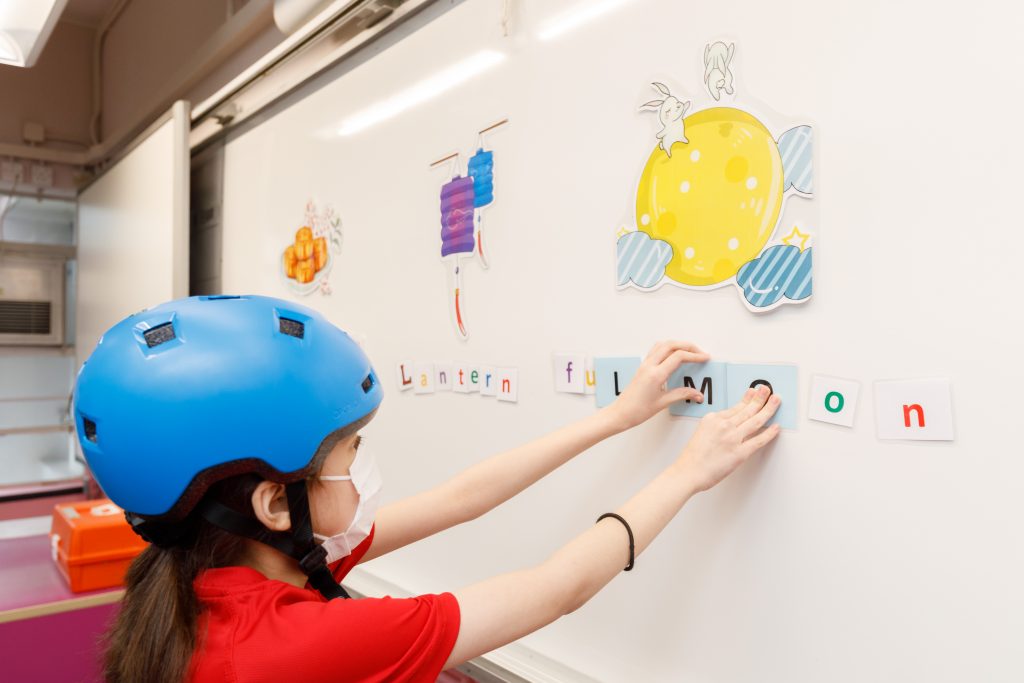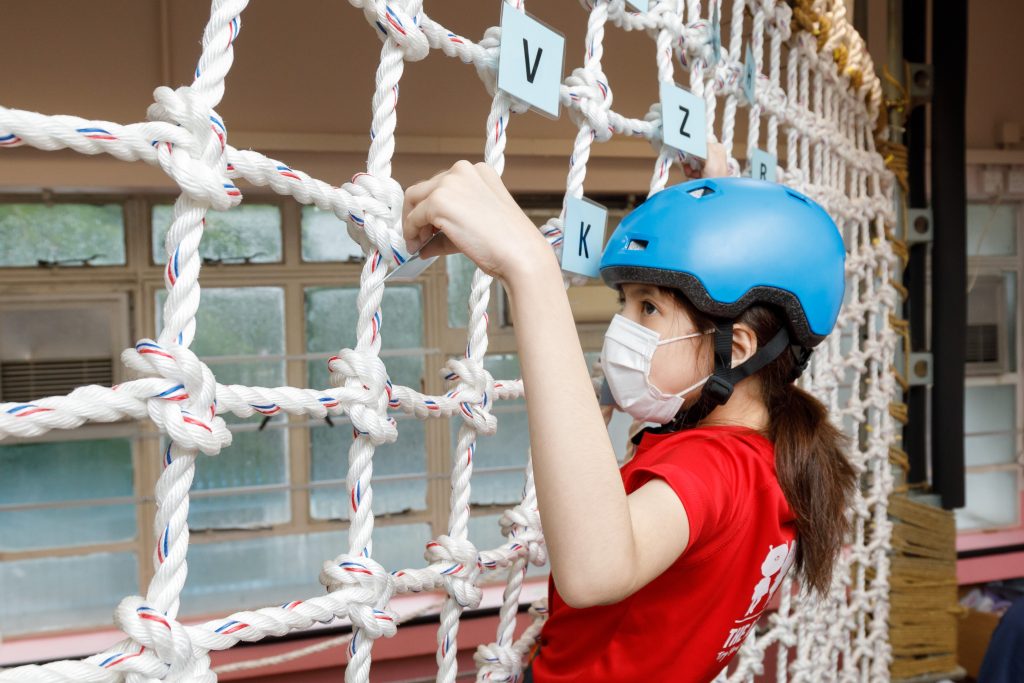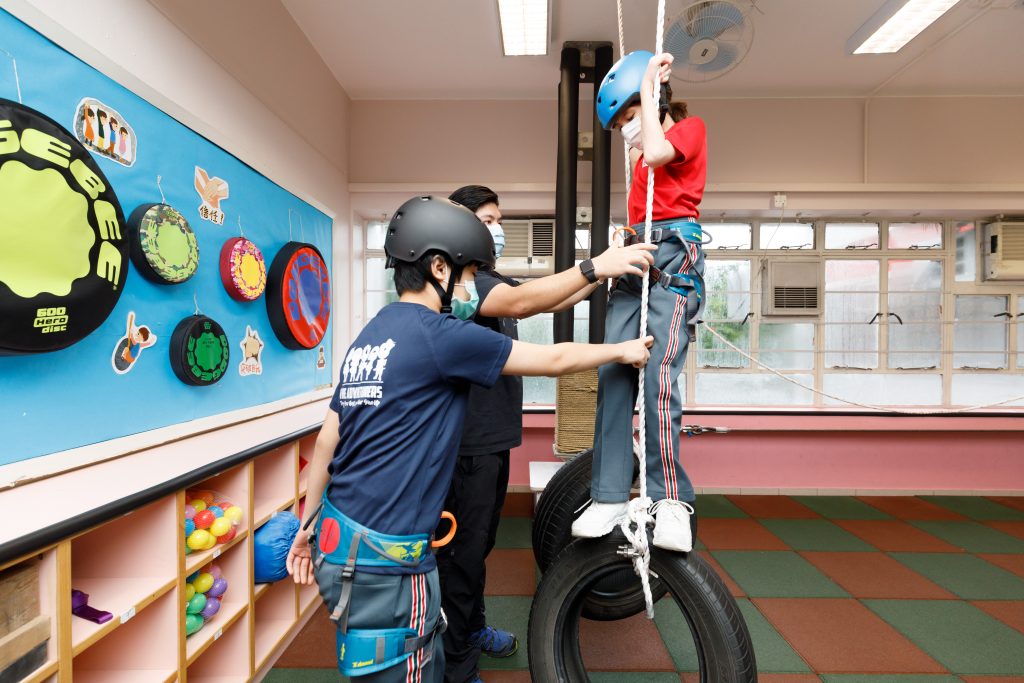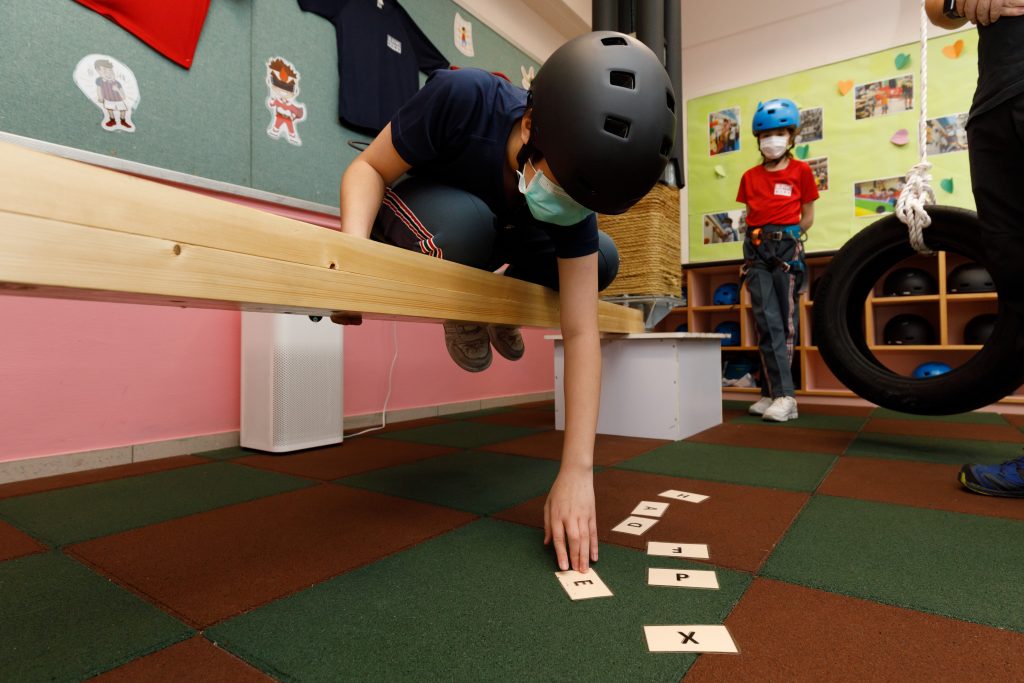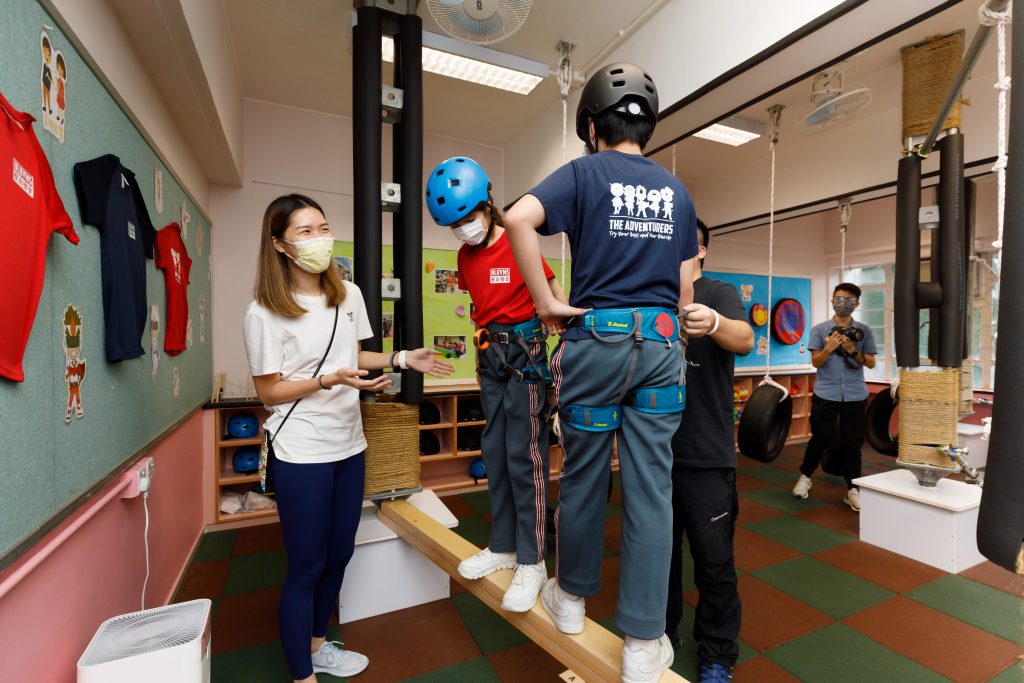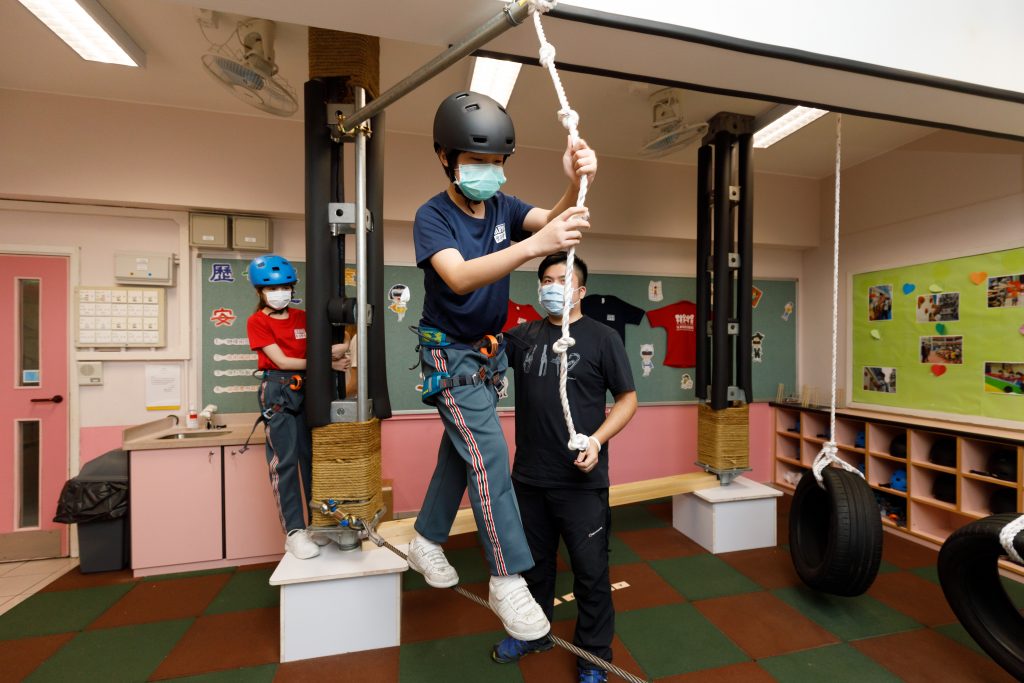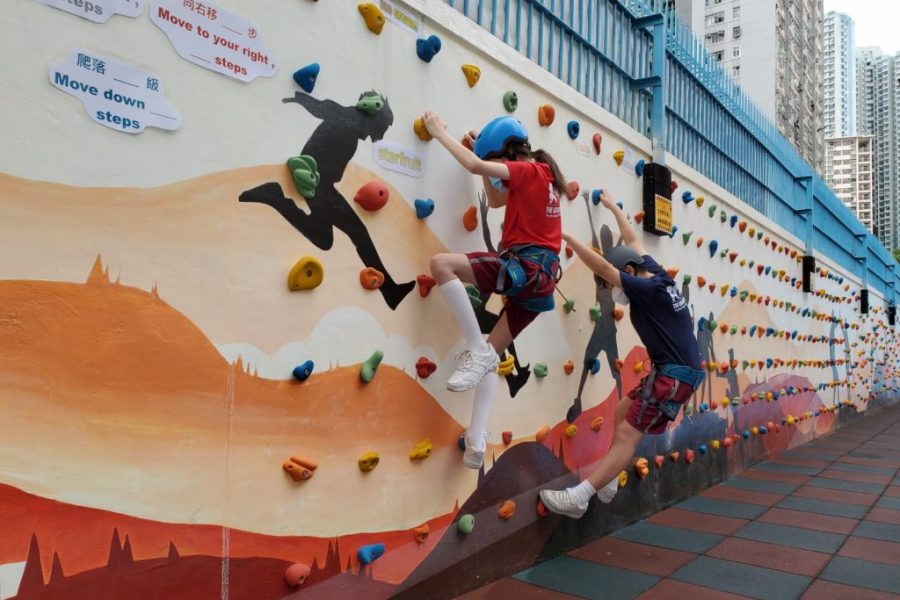Fostering resilience as well as problem-solving, collaboration and communication skills in children takes more than words. These attributes must be achieved through regular and long-term guidance. Buddhist Lam Bing Yim Memorial School has ingeniously incorporated an Adventure Discovery Palace and a climbing wall into the English adventure curriculum across Primary One to Six to cultivate students’ con dence, teamwork, positivity, perseverance, problem-solving skills and resilience. The new addition also aims at nurturing optimism and preparing them for future challenges.
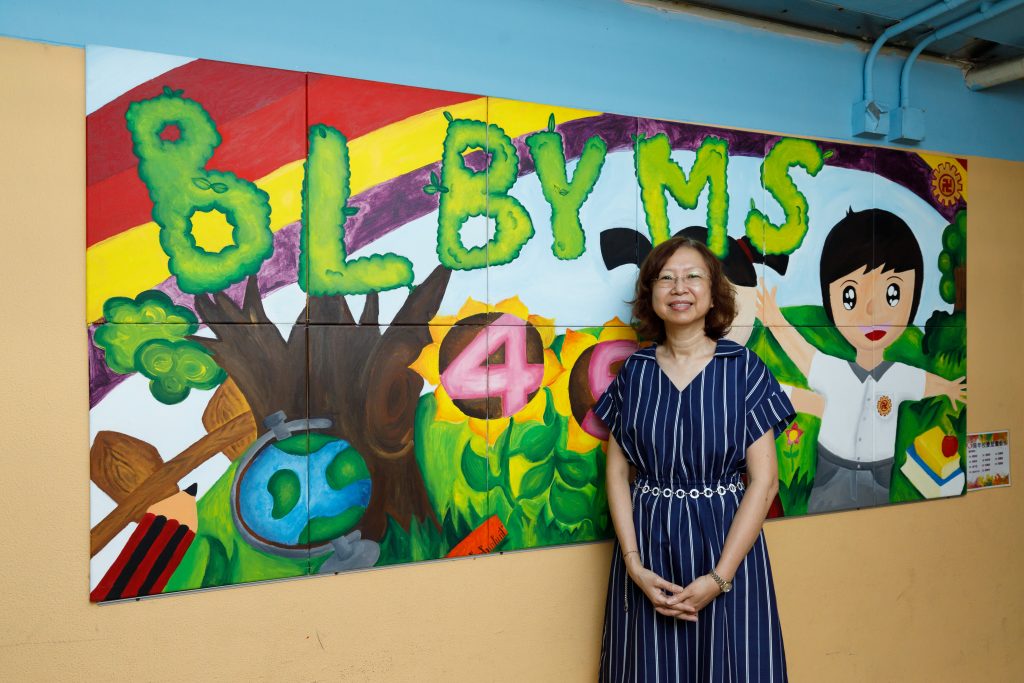
The idea of setting up adventure facilities on campus and incorporating it into the curriculum is laudably foresightful and creative. Principal Li Yuk Chi of the Buddhist Lam Bingyan Memorial Primary School said, “Our goal is to help children internalize outstanding character traits through adventure. Children today are often over-protected. Even if they are not an only child, their parents smother them with care. But children must learn to independently handle their studies and future career. Besides conveying knowledge, schools are also responsible for cultivating children’s good characters, so they are equipped with the necessary skills and attitudes to face and overcome adversity adulthood will bring. Children nowadays lead a materialistic life as most families do not challenge their kids on purpose. But the school environment is different. It is an excellent platform for children to re ect on the reasons behind success and failure.”
The idea of setting up adventure facilities on campus and incorporating them into the curriculum is laudably foresightful, creative and bold. Principal Li Yuk Chi of the Buddhist Lam Bing Yim Memorial School said, “Our goal is to help children internalize outstanding character traits through adventure. Children today are often over-protected. Even if they are not an only child, their parents smother them with care. But children must learn to independently handle their studies and future career. Besides conveying knowledge, schools are also responsible for cultivating good characters and equipping children with the necessary skills and attitudes to overcome adversity they will face in adulthood. Children nowadays lead an abundant lifestyle and most families would not create challenges for their kids on purpose. But the school environment is different. It is an excellent platform for children to re ect on the reasons behind success and failure.”
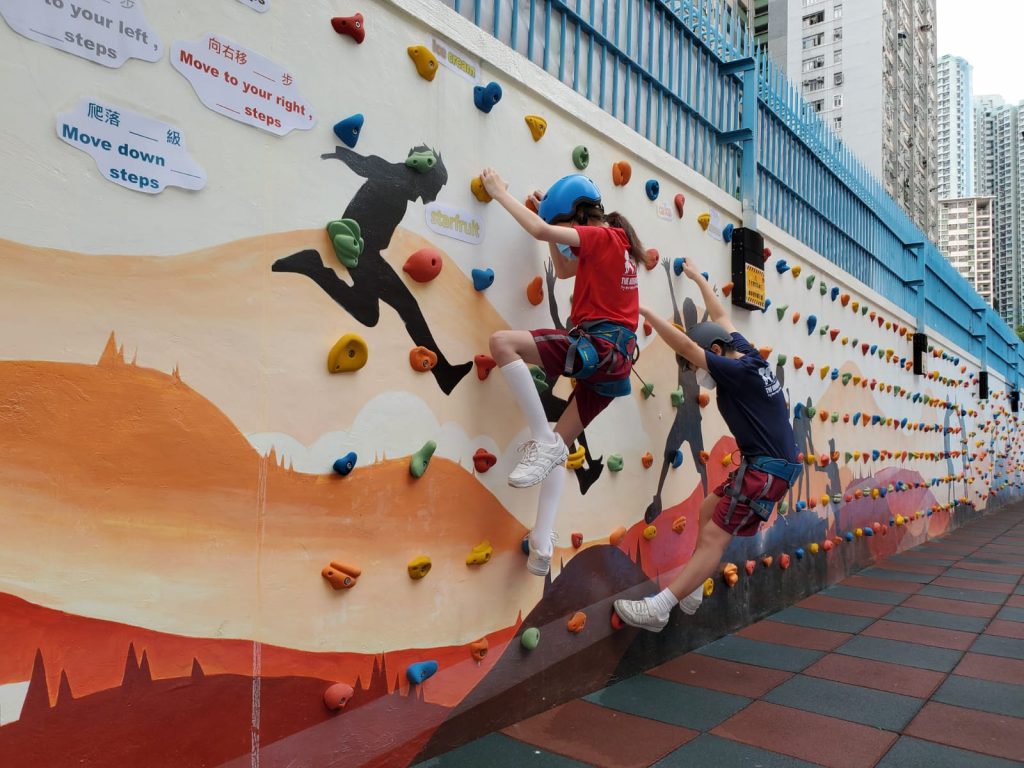
Gradually cultivate character traits via adventure-based courses
The adventure-based courses are held every other week. Children will participate in 16 consecutive lessons every year to gradually cultivate the designated characteristics listed in their training goals. The course is divided into six grades. The theme for Primary One is “con dence”, “cooperation” for Primary Two, “positivity” for Primary Three, “perseverance” for Primary Four, “problem solving” for Primary Five and “resilience” for Primary Six. The dif culty of these activities and tasks will escalate according to grade. Joe Kwan, the coach, explained, “We hope that in addition to classroom subjects like Chinese, English and Mathematics, children can also improve their self-con dence and problem-solving skills. This is especially important for Primary Six students who are under the pressure of enrolling into secondary schools of their choice. We hope to teach them ways to recognize and relieve stress through adventure-based courses. For Primary One students who are beginning to understand themselves, we will arrange self-portrait activities for them to recognize their strengths and weaknesses as well as ways to improve. For Primary Three and Primary Four students who require teamwork and communication skills, we will ask them to build towers with limited materials in teams. In addition, rock climbing can also train children’s communication skills. Children who are climbing may not be able to see the whole wall, so they need reminders from classmates who are watching from the ground. We divide the class into groups of three to four, whereby one is the climber and the rest are guides. In addition to the climbing wall and Adventure Discovery Palace, we have also arranged other adventure-based activities such as the ‘rainbow umbrella’ for junior students and the ‘trust ladder’ for senior students. Activities for senior students demand more leadership roles and teamwork. All students will undergo a debrie ng session after the activities to help them re ect on the experience and application in real life, so they could easily tackle these issues when they face dif culties in the future. For example, when children are burdened with stress, they can practise what they did in these adventure-based courses to relax their minds. There is no grading in adventure-based courses because what children take from the lessons is the best result.”
Learning English while tackling challenges
Apart from fostering good virtues, adventure-based courses can help improve one’s English skills. English teacher Ms Shih Ting Yan explained, “During each activity, we will give children instructions in English like ‘put on your helmet’. Our adventure-based courses prioritize the cultivation of problem-solving skills, so we also encourage our students with English phrases such as ‘never give up’, infusing the element of language in our activities. Moreover, students will learn practical English phrases such as ‘forward’ and ‘backward’ during rock climbing sessions so they can ask for directions on their own out in the real world. We will also organize activities based on different festivals. For instance, teachers will teach junior students English phrases related to the Mid-Autumn Festival using imagery such as linking the ‘o’ in ‘mooncake’ to the shape of the moon. Senior students, meanwhile, will learn the usage of question words like ‘what’, ‘why’ and ‘how’. These exercises can help students develop their language and composition skills.”
The school understands parents’ concerns regarding students’ safety and have implemented corresponding measures. During the activity, professional trainers, student advisors and teachers will keep an eye on the students, promising a faculty-student ratio of 1:8. To further facilitate home-school communication and allow parents to experience what their children get to do in the activities, the school will organize family adventure-based activities in the future. At the same time, every student will be given a learning booklet for self-re ection that requires a parent’s signature. This will not only strengthen students’ learning, but parents can also better observe their children’s improvements.
According to Principal Li Yuk Chi, this innovative idea to organize regular adventure-based courses in school stems from her team’s teamwork and support. When asked about the team’s advice to parents, all teachers and trainers said, “Children nowadays do not lack material goods. But a materialistic life may not cultivate a strong mind. We wish to break through the boundaries of rote learning and apply students’ good virtues and problem-solving abilities onto their daily lives via adventure-based activities. Many parents may coddle their children. But the reality is: children must go through obstacles in order to thrive! The theory is similar to riding a bike: it is dif cult to succeed without falling in the process. Their growth and development will be stunted so long as parents cannot let go of thoughts like ‘what I am doing for them is for the best’ or a fear that their children will be in harm’s way.”
